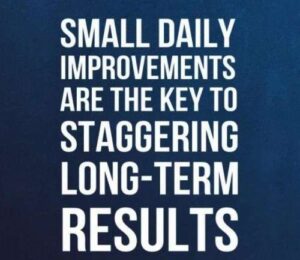Introduction
Are you tired of feeling sluggish and rundown? Do you want to boost your energy levels and improve your overall health? If so, it’s time to consider adding a vitamin supplement to your daily routine. But with so many options out there, how do you choose the perfect vitamin supplier?
The Importance of a Good Vitamin Supplier
When it comes to vitamin supplements, quality matters. A good vitamin supplier will provide you with products that are safe, effective, and made from high-quality ingredients. They will also be transparent about their manufacturing processes and ingredient sourcing.
What to Look for in a Vitamin Supplier
When choosing a vitamin supplement supplier, keep the following factors in mind:
- Reputation: Look for suppliers with a solid reputation in the industry. Check online reviews and ask for recommendations from friends and family.
- Quality Control: Ensure that the supplier follows strict quality control measures to guarantee the purity and potency of their products.
- Ingredient Sourcing: Opt for suppliers who source their ingredients from reputable and trusted sources.
- Transparency: Choose a supplier who is transparent about their manufacturing processes and is willing to provide detailed information about their products.
- Follow the Money: Who owns the parent company? Call me a cynic, but if the parent company is some “Big Pharma” business pretending to be a specialist supplier, do they really have your best interests at heart?
What to Avoid
Now that you know what to look for, let’s talk about what to avoid when choosing a vitamin supplement supplier. One of the key things to watch out for is the use of bulking ingredients. These are often added to supplements to increase their volume but offer little to no nutritional value. Some common bulking ingredients to avoid include:
- Maltodextrin: This cheap filler is often derived from corn or wheat and can cause digestive issues in some individuals.
- Dicalcium Phosphate: While it’s commonly used as a calcium supplement, it’s also used as a bulking agent in some vitamin supplements. However, it can interfere with the absorption of other nutrients.
- Microcrystalline Cellulose: This is another common bulking agent that can cause digestive discomfort and may interfere with nutrient absorption.
- Silicon Dioxide: While it’s considered safe in small amounts, excessive consumption of silicon dioxide can lead to respiratory issues.
Conclusion
 Choosing a good vitamin supplement supplier is essential for ensuring that you get the best possible product. By considering factors such as reputation, quality control, ingredient sourcing, and transparency, you can make an informed decision. And remember, always be mindful of the bulking ingredients used in supplements and avoid those that offer little nutritional value. Here’s to your health!
Choosing a good vitamin supplement supplier is essential for ensuring that you get the best possible product. By considering factors such as reputation, quality control, ingredient sourcing, and transparency, you can make an informed decision. And remember, always be mindful of the bulking ingredients used in supplements and avoid those that offer little nutritional value. Here’s to your health!




 There are several different ways to take iodine:
There are several different ways to take iodine:



 Mental clutter refers to the overwhelming thoughts and worries that occupy your mind. It can be caused by a variety of factors, such as excessive multitasking, information overload, or unresolved emotions. When your mind is cluttered, it can lead to anxiety, lack of focus, and difficulty making decisions.
Mental clutter refers to the overwhelming thoughts and worries that occupy your mind. It can be caused by a variety of factors, such as excessive multitasking, information overload, or unresolved emotions. When your mind is cluttered, it can lead to anxiety, lack of focus, and difficulty making decisions.
 One of the main reasons why work-life balance is essential is because it helps prevent burnout. When we constantly push ourselves to work long hours without taking breaks or time off, our physical and mental health can suffer. Stress levels increase, productivity decreases, and we become more prone to making mistakes. On the other hand, when we make an effort to create a balance between our work and personal life, we give ourselves the opportunity to recharge and rejuvenate.
One of the main reasons why work-life balance is essential is because it helps prevent burnout. When we constantly push ourselves to work long hours without taking breaks or time off, our physical and mental health can suffer. Stress levels increase, productivity decreases, and we become more prone to making mistakes. On the other hand, when we make an effort to create a balance between our work and personal life, we give ourselves the opportunity to recharge and rejuvenate. we may miss out on opportunities for personal growth and fulfilment. Whether it’s pursuing a hobby, learning a new skill, or simply taking time for self-care, having a balanced life enables us to explore our interests and find joy outside of work.
we may miss out on opportunities for personal growth and fulfilment. Whether it’s pursuing a hobby, learning a new skill, or simply taking time for self-care, having a balanced life enables us to explore our interests and find joy outside of work.




 Omega-3 fish oil has been shown to be incredibly beneficial for overall health, particularly for heart, brain, joint, and eye health. Therefore, incorporating fatty fish into your diet or taking fish oil supplements can provide you with the necessary omega-3 fatty acids. But always remember to consult with a healthcare professional to determine the appropriate daily intake based on your individual needs.
Omega-3 fish oil has been shown to be incredibly beneficial for overall health, particularly for heart, brain, joint, and eye health. Therefore, incorporating fatty fish into your diet or taking fish oil supplements can provide you with the necessary omega-3 fatty acids. But always remember to consult with a healthcare professional to determine the appropriate daily intake based on your individual needs.

